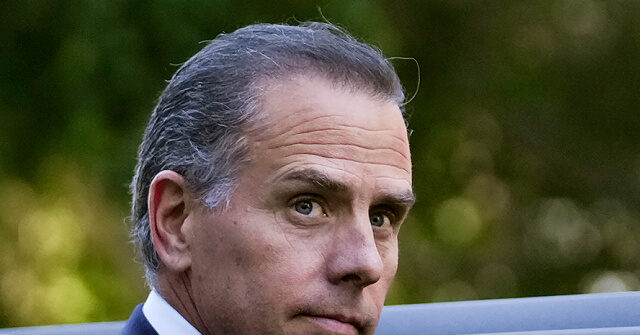Hunter Biden, the son of President Joe Biden, recently announced that he has received a full pardon from his father, expressing deep gratitude for the clemency granted to him. In a statement shared on X, he emphasized that he would never take this opportunity for granted, recognizing the complexity of his journey. Highlighting his struggles with addiction, Hunter mentioned that he has taken accountability for his past mistakes, which have been used against him and his family in a politically charged climate. He emphasized that he has maintained sobriety for over five years, largely due to his faith and the support from loved ones, showcasing a commitment to personal growth and healing.
Reflecting on his past, Hunter Biden acknowledged the significant advantages and opportunities squandered during his addiction. He expressed a sense of urgency for recovery and the importance of making amends while emphasizing the potential for rebuilding one’s life. Hunter pledged to dedicate himself to helping others dealing with similar challenges, demonstrating a desire to turn personal struggles into a foundation for aiding others. This conviction not only underscores his commitment to his own recovery but also points to a broader mission of compassion and understanding towards those who continue to face the difficulties of addiction.
The context of Hunter’s pardon comes against a backdrop of legal troubles, as he was recently found guilty on three gun charges by a Delaware jury and faced additional charges related to tax evasion. His father, President Biden, addressed the situation by reaffirming his promise to maintain a distance from the Justice Department’s decisions, despite personally witnessing what he perceives as a selective prosecution against his son. The President’s stance highlights a delicate balance between familial support and the commitment to uphold the integrity of judicial processes, signifying the depths of their relationship as they navigate public scrutiny.
In the press release accompanying the pardon, President Biden stated that the clemency offered to Hunter covers several offenses potentially committed over a specified period, from January 1, 2014, through December 1, 2024. The language in the pardon reflects a comprehensive approach to ensuring that Hunter is shielded from repercussions related to his past actions, emphasizing a belief in mercy and rehabilitation over punishment. This decision marks a critical moment for both Hunter and his family, as it represents a significant step toward closure in a tumultuous chapter of their lives.
Moreover, the pardon demonstrates the Biden administration’s evolving narrative surrounding issues of addiction and recovery. By publicizing Hunter’s struggles and subsequent redemption, the President appears to advocate for a more compassionate view of addiction as a health issue rather than a criminal one. This pivot is crucial, especially in a politically polarized environment where narratives about addiction often become fodder for criticism and division. Hunter’s commitment to helping others in similar situations may also signify a broader movement within American society towards recognizing the need for empathy and support in combatting addiction.
In summary, Hunter Biden’s receipt of a full pardon from President Biden marks a significant moment in both their lives, intertwining personal struggles with broader societal themes surrounding addiction and recovery. Hunter’s expression of gratitude and commitment to help others is not just a statement of personal responsibility but also a call for collective understanding and reform. Simultaneously, the political implications of this pardon highlight the complex interplay between familial loyalty and the principles of justice, setting the stage for ongoing discourse on addiction, accountability, and the role of mercy in the pursuit of justice.

